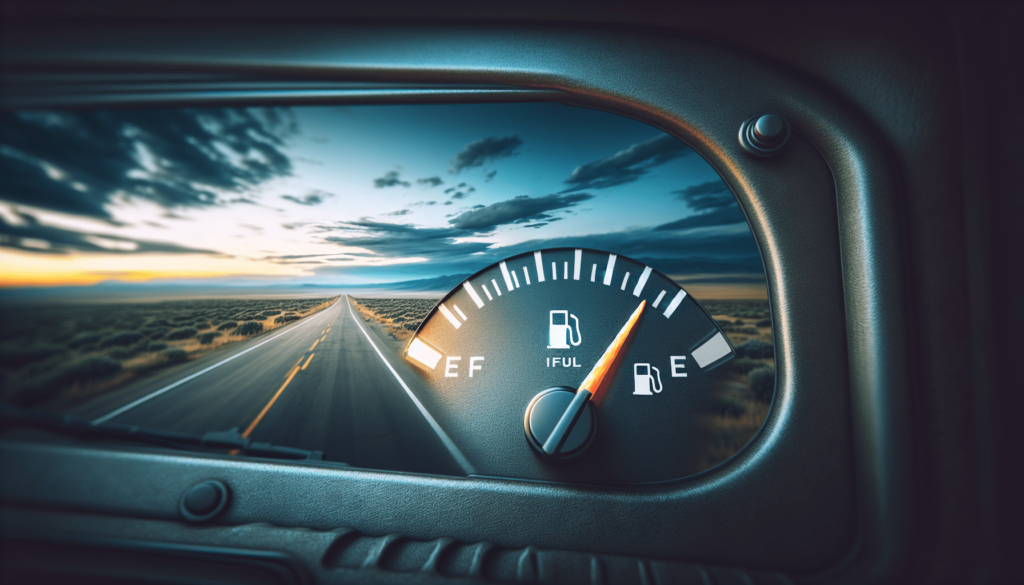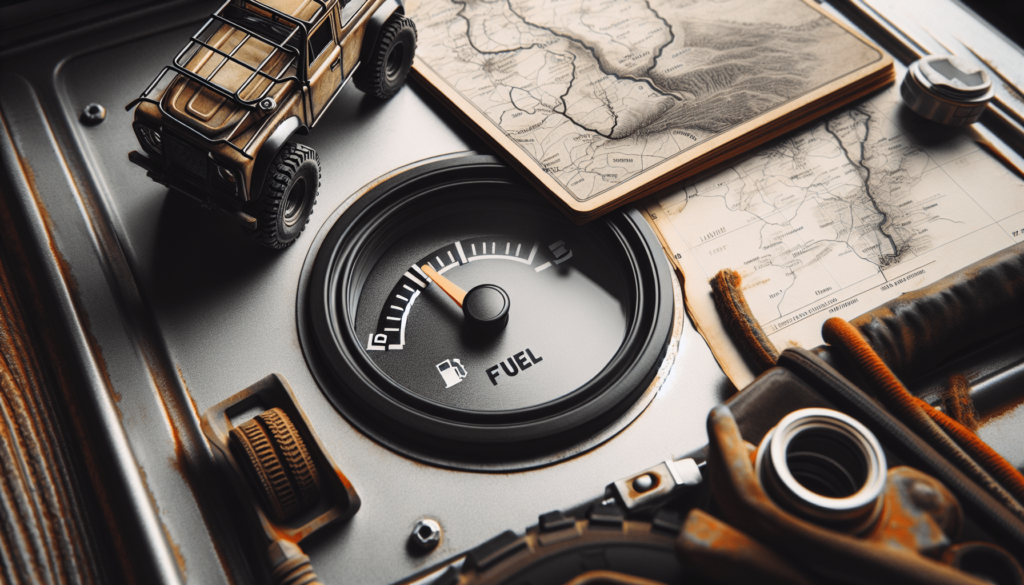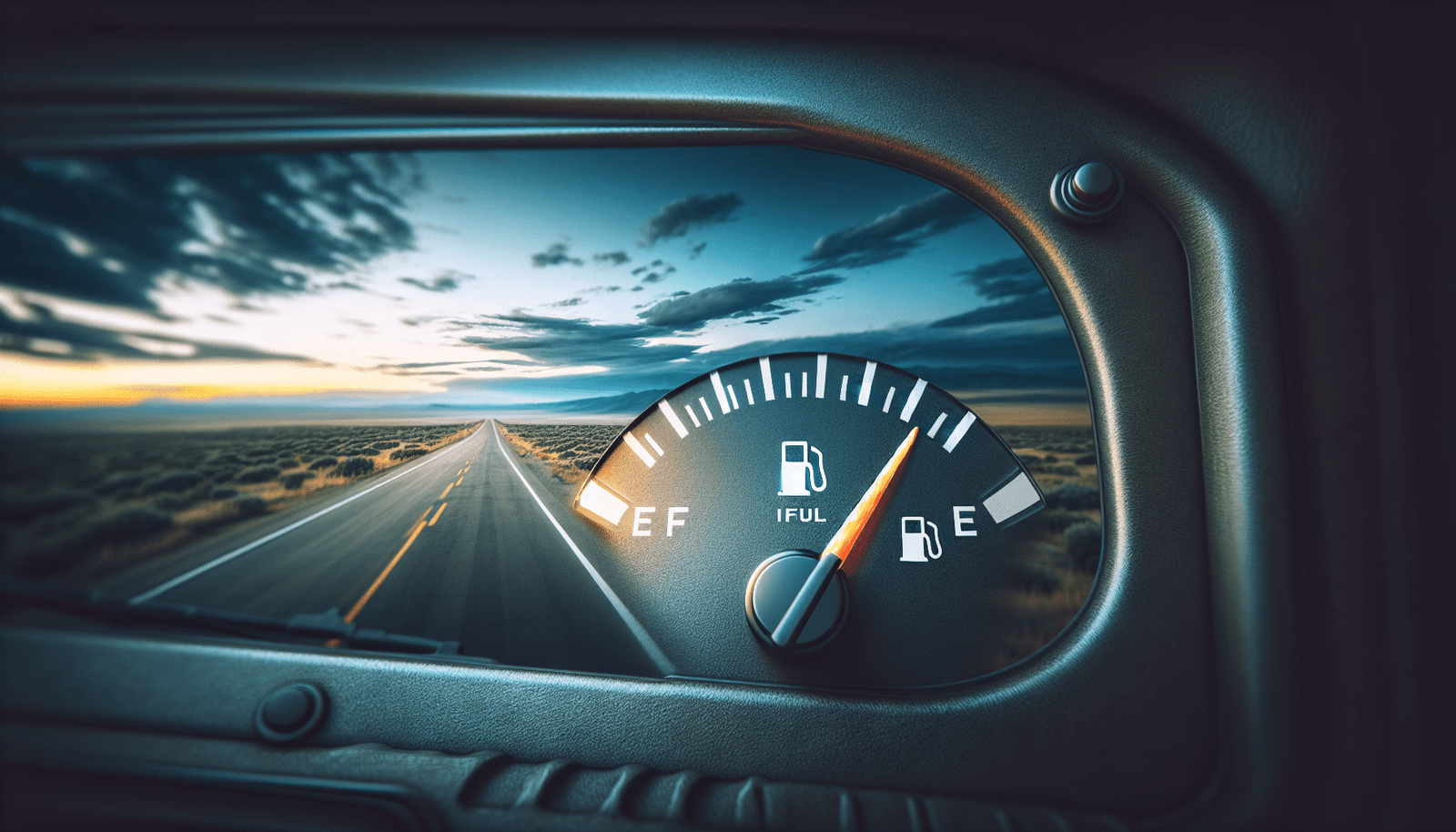If you’ve ever wondered how to make your overland vehicle go the extra mile, this article is for you. We all know that fuel efficiency is not only good for your wallet but also for the environment. In this guide, we will explore some simple yet effective ways to improve the fuel efficiency of your overland vehicle, allowing you to embark on longer adventures with peace of mind. From practical tips to smart habits, we’ve got you covered. So buckle up, and let’s hit the road to more efficient and eco-friendly travels!
Regular Vehicle Maintenance
Check and Replace Air Filter
Keeping your air filter clean and in good condition is essential for maximizing fuel efficiency. Over time, dirt and debris can accumulate in the air filter, restricting airflow to the engine. This can cause the engine to work harder and consume more fuel. By regularly checking and replacing your air filter, you ensure that your engine is receiving clean, unrestricted air, leading to improved fuel efficiency.
Keep Tires Properly Inflated
Did you know that properly inflated tires can significantly improve your vehicle’s fuel efficiency? When your tires are underinflated, more of the tire’s surface area comes into contact with the road, resulting in increased rolling resistance. This increased resistance requires more power from the engine, resulting in higher fuel consumption. By regularly checking and maintaining proper tire pressure, you can minimize rolling resistance and improve your fuel efficiency.
Change Engine Oil Regularly
Regularly changing your engine oil is crucial for maintaining optimal engine performance and fuel efficiency. Over time, engine oil can become contaminated with dirt, debris, and other impurities, causing it to lose its lubricating properties. This can result in increased friction within the engine, leading to decreased fuel efficiency. By following the manufacturer’s recommended oil change intervals and using the appropriate oil type, you can ensure that your engine is running smoothly and efficiently.
Use the Recommended Fuel Type
Using the recommended fuel type for your vehicle is essential for maximizing fuel efficiency. Different engines are designed to run on specific fuel types, and using the wrong one can negatively impact your vehicle’s performance and fuel consumption. By using the recommended fuel type, you ensure that your engine operates efficiently and achieves optimal fuel combustion, resulting in improved fuel efficiency.
Reduce Vehicle Weight
Remove Unnecessary Equipment and Accessories
One effective way to improve your vehicle’s fuel efficiency is by removing unnecessary equipment and accessories. Carrying extra weight in your vehicle requires more power to accelerate and maintain speed, resulting in increased fuel consumption. By decluttering your vehicle and only carrying essential items, you can reduce its weight and improve fuel efficiency.
Use Lightweight Camping Gear
If you’re an avid camper or enjoy traveling with camping gear, opting for lightweight equipment can make a significant difference in your vehicle’s fuel efficiency. Heavy camping gear adds extra weight to your vehicle, increasing fuel consumption. By investing in lightweight camping gear, such as tents, chairs, and cookware, you can reduce the overall weight of your vehicle and enhance fuel efficiency.
Pack Only Essential Supplies
When embarking on an overland adventure, it’s important to pack only the essential supplies. Resist the temptation to overpack as extra items will increase the weight of your vehicle and reduce fuel efficiency. Evaluate your travel needs carefully and pack only what is necessary for your journey. This will not only save you fuel but also provide you with a more organized and comfortable travel experience.

Optimize Driving Habits
Avoid Aggressive Driving
One of the most impactful ways to improve your fuel efficiency is by avoiding aggressive driving habits. Rapid acceleration, excessive braking, and speeding require more fuel to power your vehicle. By adopting a more relaxed and mindful driving style, you can reduce fuel consumption and improve your overall fuel efficiency. Avoid sudden bursts of speed or erratic movements, and instead, opt for smooth and controlled driving.
Maintain a Consistent Speed
Maintaining a consistent speed can have a significant impact on your vehicle’s fuel efficiency. Frequent speed fluctuations require extra fuel to compensate for the increased power demands. By setting and maintaining a steady speed, especially on highways or open roads, you can minimize fuel consumption and optimize your fuel efficiency.
Minimize Idle Time
Idling your vehicle for extended periods not only wastes fuel but also harms the environment. Whether you’re waiting in traffic or parked, avoiding excessive idling is essential for improving fuel efficiency. If you anticipate a prolonged stop, consider turning off your engine to conserve fuel. Additionally, avoid using drive-thru services whenever possible, as idling in line can waste a significant amount of fuel.
Plan Efficient Routes
Planning efficient routes can help minimize fuel consumption during your overland adventures. Choose routes with fewer traffic congestions, and use GPS or navigation apps to find the most direct paths. By reducing the distance traveled and avoiding unnecessary detours, you can optimize your fuel efficiency and enjoy a smoother journey.
Aerodynamics and Wind Resistance
Add Aerodynamic Accessories
Enhancing your vehicle’s aerodynamics can greatly improve fuel efficiency, especially at higher speeds. You can add various aerodynamic accessories, such as wind deflectors, spoilers, and side skirts, to minimize drag and reduce wind resistance. These accessories optimize the airflow around your vehicle, allowing it to slice through the air more smoothly and efficiently, ultimately reducing fuel consumption.
Remove Roof Racks and Cargo Carriers
While roof racks and cargo carriers are convenient for transporting extra gear, they can significantly impact your vehicle’s fuel efficiency. When not in use, it is advisable to remove these additions as they create additional drag and increase wind resistance. By keeping your vehicle sleek and unencumbered by unnecessary equipment, you can improve fuel efficiency and reduce fuel consumption.

Upgrade to Fuel-efficient Parts
Install Low-rolling Resistance Tires
Upgrading to low-rolling resistance tires can greatly enhance your vehicle’s fuel efficiency. These tires are designed to minimize the energy lost from the friction between the tires and the road, resulting in reduced rolling resistance. By reducing rolling resistance, low-rolling resistance tires allow your vehicle to move more easily, requiring less power and fuel consumption.
Use Synthetic Oils and Lubricants
Using synthetic oils and lubricants can significantly improve your vehicle’s fuel efficiency. Synthetic oils have superior lubricating properties compared to conventional oils, reducing friction within the engine. This reduced friction allows the engine to operate more smoothly, resulting in improved fuel efficiency. Additionally, synthetic oils and lubricants are designed to withstand higher temperatures, providing better engine protection and longevity.
Upgrade to Fuel-efficient Spark Plugs
Upgrading to fuel-efficient spark plugs can improve combustion efficiency and fuel economy in your vehicle. High-performance spark plugs, such as platinum or iridium plugs, provide a stronger and more consistent spark, ensuring optimal fuel combustion. This leads to improved engine performance and fuel efficiency.
Consider Vehicle Modifications
Install a Fuel Vapor Recovery System
Installing a fuel vapor recovery system can help improve your vehicle’s fuel efficiency by reducing fuel vapor emissions. This system captures and stores fuel vapor that would otherwise be released into the atmosphere, recycling it back into the engine for combustion. By utilizing this technology, you not only contribute to a cleaner environment but also improve your vehicle’s fuel efficiency.
Upgrade to a Diesel Fuel Injection System
Consider upgrading to a diesel fuel injection system if your vehicle currently uses a carburetor or an outdated fuel injection system. Diesel fuel injection systems are more efficient and precise, delivering fuel directly into the combustion chamber. This results in better fuel atomization and combustion, ultimately improving fuel efficiency.
Utilize Fuel-saving Technologies
Install a Fuel Consumption Monitor
Installing a fuel consumption monitor allows you to track and analyze your vehicle’s fuel usage in real-time. This technology provides valuable insights into your driving habits and helps you identify areas where you can improve fuel efficiency. By monitoring fuel consumption, you can make adjustments and adopt more fuel-efficient driving practices.
Consider a Fuel-saving Device
Various fuel-saving devices are available on the market, claiming to improve fuel efficiency. While some may be effective, it’s important to research and choose reputable devices that have been scientifically tested and proven. Common examples include electronic fuel injectors, fuel additives, and engine management systems. Consulting with automotive experts can help you make informed decisions about which devices may be suitable for your vehicle.
Maintain Proper Engine Functionality
Check and Replace Oxygen Sensor
The oxygen sensor plays a crucial role in monitoring the amount of oxygen in the exhaust gases and adjusting the air-fuel mixture accordingly. A malfunctioning oxygen sensor can cause the engine to run inefficiently, leading to increased fuel consumption. Regularly checking and replacing the oxygen sensor, as recommended by your manufacturer, can help maintain optimal engine functionality and fuel efficiency.
Keep Fuel Injectors Clean
Over time, fuel injectors can become clogged or dirty, affecting their ability to deliver fuel accurately. This can lead to poor fuel atomization and combustion, resulting in decreased fuel efficiency. Regularly cleaning your fuel injectors or using fuel system cleaners can help remove deposits and maintain their proper functionality, ensuring optimal fuel efficiency.
Ensure the Catalytic Converter is in Good Condition
The catalytic converter plays a vital role in reducing harmful emissions from your vehicle. A malfunctioning or damaged catalytic converter can negatively impact engine performance and fuel efficiency. Regular inspection and maintenance of the catalytic converter can help identify any issues early on and ensure that it is functioning optimally, contributing to improved fuel efficiency.
Choose the Right Overland Vehicle
Consider a Smaller and Lighter Vehicle
When choosing an overland vehicle, consider opting for a smaller and lighter model. Larger vehicles generally have higher fuel consumption due to their increased weight and larger engines. By selecting a smaller and lighter vehicle that meets your needs, you can improve fuel efficiency and enjoy more economical travels.
Opt for a Diesel or Hybrid Engine
Diesel and hybrid engines are known for their better fuel efficiency compared to traditional gasoline engines. Diesel engines offer higher fuel efficiency and torque, making them ideal for long-distance travel. Hybrid engines combine the benefits of electric and gasoline power, allowing for increased fuel efficiency and reduced emissions. Considering vehicles with these engine options can help you optimize fuel efficiency during your overland adventures.
Explore Alternative Fuel Options
Consider Using Biofuels
Biofuels, such as ethanol and biodiesel, are renewable and environmentally friendly alternatives to traditional fossil fuels. Biofuels are derived from organic materials, such as plant-based crops, and can be used as a substitute or blended with gasoline or diesel fuel. Using biofuels in your overland vehicle can reduce greenhouse gas emissions and contribute to a more sustainable fuel source.
Investigate Electric or Hydrogen-powered Vehicles
Electric and hydrogen-powered vehicles represent the future of transportation, with zero emissions and significant fuel efficiency. While still limited in their availability and range, these vehicles offer a clean and efficient alternative to traditional combustion engines. If feasible and within your budget, considering an electric or hydrogen-powered vehicle for your overland adventures can provide the ultimate fuel efficiency and environmental benefits.
In conclusion, improving the fuel efficiency of your overland vehicle requires a multi-faceted approach. By implementing regular vehicle maintenance practices, reducing vehicle weight, optimizing driving habits, considering aerodynamics, upgrading to fuel-efficient parts, utilizing fuel-saving technologies, maintaining proper engine functionality, choosing the right overland vehicle, and exploring alternative fuel options, you can significantly enhance your fuel efficiency and reduce your carbon footprint. Implementing these strategies not only benefits your wallet but also contributes to a cleaner and more sustainable environment for future generations of adventurers. So, gear up, hit the road, and enjoy the thrill of overland travel while taking steps to make a positive impact on the world around you. Safe travels!

